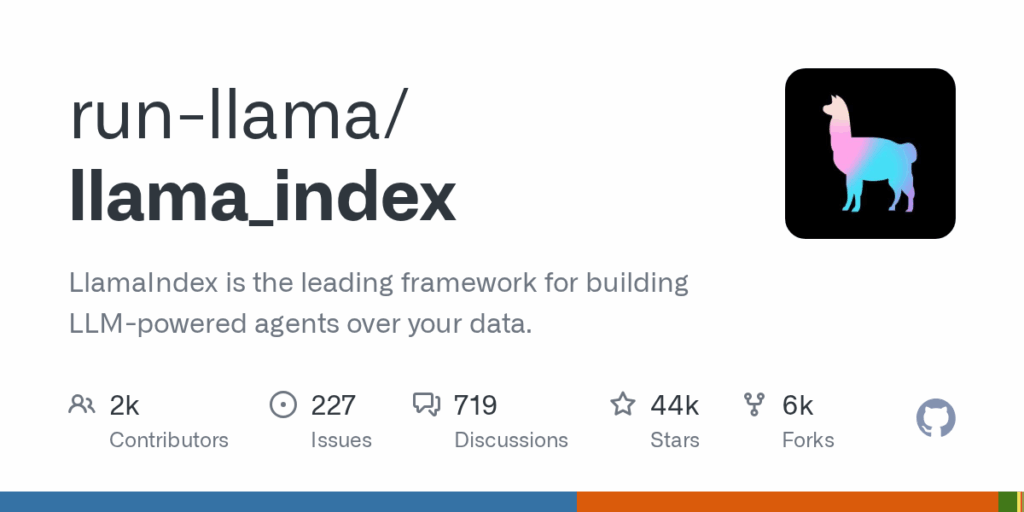llama_index
Basic Information
LlamaIndex is a Python data framework for building LLM applications that augment large language models with private or external data. It provides core libraries plus a modular set of integration packages so developers can ingest documents and APIs, structure data into indices and graphs, and run retrieval-augmented queries against that data. The repository ships a starter package and a core package model where users can add chosen integrations. It targets both beginners and advanced users by offering simple high-level APIs for quick ingestion and querying as well as lower-level components for custom retrievers, indices, and query engines. Example usage, persistence, and examples for popular LLMs and embedding backends are included in the docs and examples folders.








